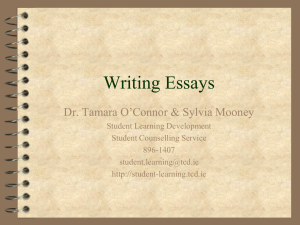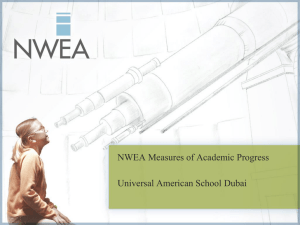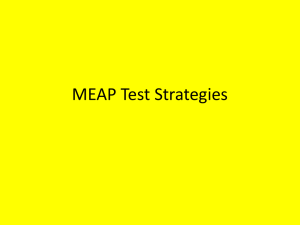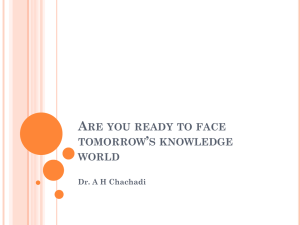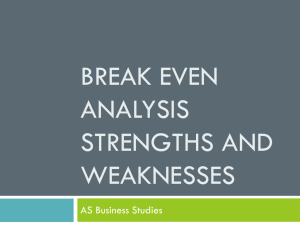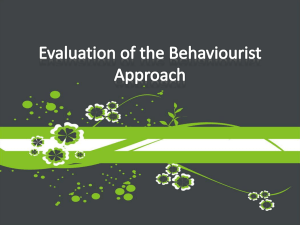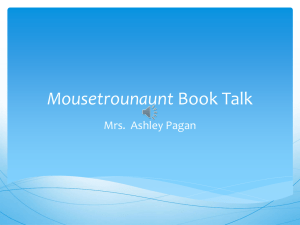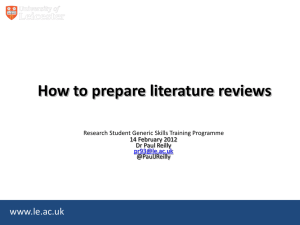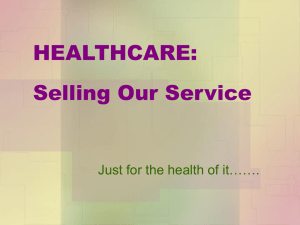Essay Writing - Student Learning Development
advertisement
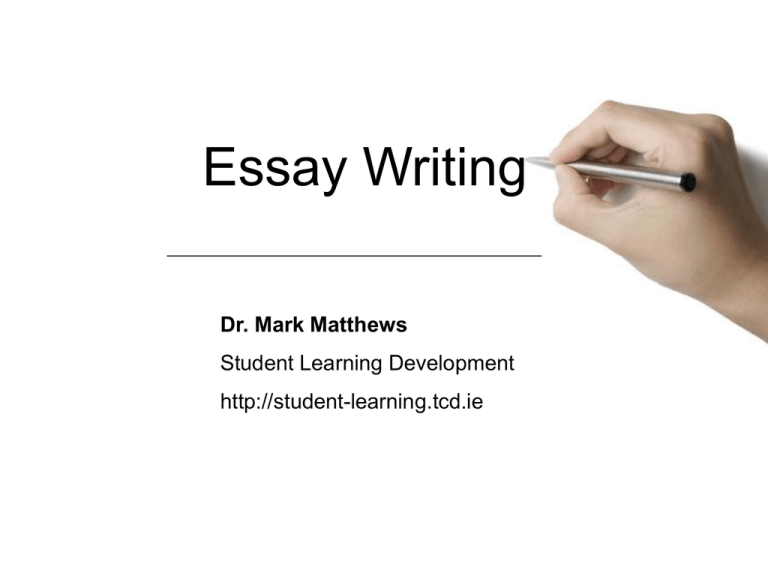
Essay Writing Dr. Mark Matthews Student Learning Development http://student-learning.tcd.ie Discussion (5 mins) 1. How do you go about completing an assignment? 2. When do you start? 3. How do you get from the question to a completed answer? 1 Thing you would like help with today Writing Stages/Phases 1. 2. 3. 4. 5. Planning Thinking Researching Writing Editing Plan Think Write Planning the assignment • Understand the question – Breakdown – Verbs • Requirements – Length, Wording – Referencing Planning time frame • List tasks – Preliminaries – Gathering Information – Organising Information – Rough outline – Draft 1 – Draft 2 – References – Proofreading • Create deadlines – – – – – – – – – _____________ _____________ _____________ _____________ _____________ _____________ _____________ _____________ _____________ Brainstorm ideas Organise Key message planning What do you want to say? Structure writing Communicating your ideas Thinking • Brainstorm – Ideas – What know – Try mindmapping • Preliminary reading • Refine topic • Continues throughout process Questions? • Who are your readers ? • Why are they reading? • What is your goal? Structure • Introduction – outline of essay • Main section – Main point A • details, evidence – Main point B • Conclusion – summary of main points – personal conclusions Discuss the contribution of nursing models to the development of practice • Key Words? – Discuss – Nursing model – Practice • Key themes & arguments – Define model – Arguments – Advantages & Disadvantages of using models Discuss the contribution of nursing models to the development of practice Key Message: The are well-identified weaknesses with the dominant Nursing model that are overcome by using the new Vygotsky model. Outlining – Level 1 1. Nursing and models 2. History of models 3. The Markov Model: Strengths & Weaknesses 4. An alternative: Vygotsky 5. Conclusions Outlining – Level 2 1. Nursing and models 1.1 Brief history of Nursing practice 1.2 The purpose of a model 2. History of models 2.1 The first model 2.2 Development and timeline. 3. The Markov Model: Strengths & Weaknesses 3.1 What is the model 3.2 Strengths 3.3 Weaknesses 4. An alternative: Vygotsky 4.1 What is Vygotsky Model 4.2 How overcomes weaknesses 5. Conclusions Outlining – Level 3 1. Nursing and models 1.1 Brief history of Nursing practice • Began formally 1790 (Nightingale) • Largely disorganised • Original mission to heal… 1.2 The purpose of a model • Because of disorganisation, model. • Argument for a model. 2. History of models 2.1 The first model Johnson 1820 2.2 Development and timeline. Model A Model B 3. The Markov Model: Strengths & Weaknesses 3.1 What is the model Multi-team. 3.2 Strengths 3.3 Weaknesses Level 3 Title: The Hazards of Moviegoing Introduction – – Introductory statement Thesis statement: I like watching movies but I prefer watching them at home. Body First Supporting Idea (Topic Sentence): just getting to the theater presents difficulties • • • bad weather long drive and limited parking space long waiting to buy ticket Second Supporting Idea (Topic Sentence): facing the problems of the theater itself • • old theater's problems such as smelly carpet, worn-out seat, etc new theater's problems such as smaller size, noise from next movie theater, etc both floors will be rubber-like dirty at the end of the movie • Third Supporting Idea (Topic Sentence): Some of the patrons are annoying • • bad behavior such as running, talking loud, etc human noise and disturbance Conclusion – – Closing statement Restate thesis: I prefer to watch movies at home where it is comfortable, clean and safe. Introduction Outline (5 mins) 1. • • • Good health v. imp Welfare Economic development Social development 2. WHO’s goal • Healthcare for all • Balanced with countries able to pay for this 3. This report : • What can be done to change health systems to achieve universal coverage • Builds on new research and countries experience The world health report - Health systems financing: the path to universal coverage Good health is essential to human welfare and to sustained economic and social development. WHO's Member States have set themselves the target of developing their health financing systems to ensure that all people can use health services, while being protected against financial hardship associated with paying for them. In this report, the World Health Organization maps out what countries can do to modify their financing systems so they can move more quickly towards this goal; it builds on new research and lessons learnt from country experience. Taken from Executive Summary to WHO report: http://www.who.int/whr/2010/en/index.html The world health report - Health systems financing: the path to universal coverage Good health is essential to human welfare and to sustained economic and social development. WHO's Member States have set themselves the target of developing their health financing systems to ensure that all people can use health services, while being protected against financial hardship associated with paying for them. In this report, the World Health Organization maps out what countries can do to modify their financing systems so they can move more quickly towards this goal; it builds on new research and lessons learnt from Country experience. Taken from Executive Summary to WHO report: http://www.who.int/whr/2010/en/index.html Reading & Researching • Bring evidence in as witnesses • Gather information relevant to topic • Keep good notes – organise content according to outline – choose what to include • Keep references • Digest and reflect on information Writing • Start writing early – extend outline – one idea or section at a time – get something down! • Write first, rough draft • Revise & improve draft • How many drafts? Develop your argument • • • • Use source material Compare and contrast Show awareness of complexities Show line of reasoning – link points – central guiding line • Your conclusions - based on evidence References Why? • Credit sources of information & ideas • Reader can locate for further information if required • Demonstrate breadth of reading & knowledge References When? Direct quotes Paraphrases Statistics/Studies Theories Interpretations Facts Plagiarism • Using someone’s words or ideas and presenting them as your own (Marshall & Rowland, 1998) • Inappropriate use of ideas from books, articles, internet, or other students’ work ??? Referencing • Harvard referencing system • Endnote • Library video http://www.tcd.ie/Library/support/referencing.php • Cite2Write http://www.cs.qub.ac.uk/emm/10170987/cite2write/ Sample marking criteria • • • • Focusing on a topic Structuring an essay Content Formulating arguments • Presentation • Referencing • Evidence of language skills • Use of learning resources Editing • Proof read – out loud – time out – peer • Write up references • Final draft – presentation Submit! • Final deadline • Checklist • Feedback Student Learning Development Visit our website at: http://student-learning.tcd.ie Email qs to student.learning@tcd.ie Phone us on 01-8961407
